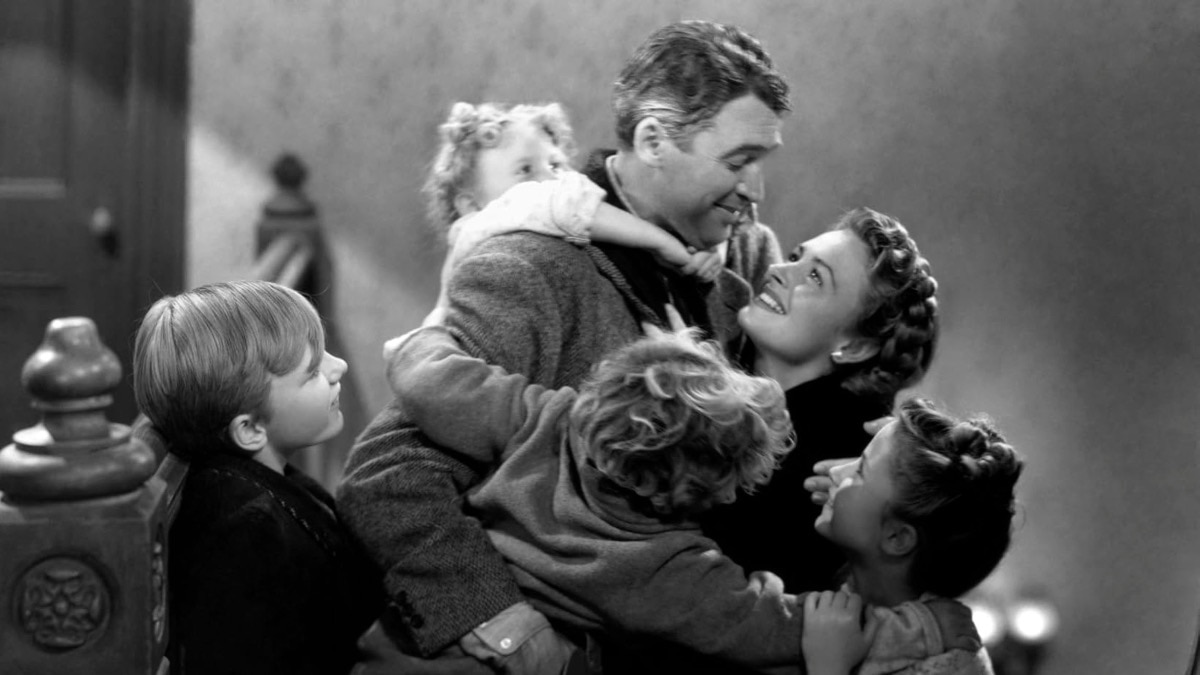10 best yoga stretches to relieve stress and tension, and improve flexibility
Yoga stretches for all levels.


Yoga stretches should be something you all aim to do. Not only will they benefit the rest of your workout routine by improving your mobility and flexibility, but also help relieve any tension and stress in your body.
Author of Yoga Happy and creator of the Hannah Barrett Yoga App, Hannah Barrett explains, "When we perform yoga stretches with deep, slow, and mindful breathing, it helps to activate our 'rest-and-digest' system (the parasympathetic nervous system). This helps to balance our nervous system and slow down the heart rate, breathing rate, and blood pressure among other things, helping us feel calmer and more connected.
"Stretching has also been shown to increase serotonin levels which is the hormone that helps to reduce stress and make us feel good. When you go into a stretch slowly and mindfully, it has a relaxing effect on muscles, helping us improve our range of motion and reduce stiffness and tension."
They’re pretty straightforward to do, too. There are just three things to keep in mind: 1) to breathe through the pose (hold your breath and it’ll feel even harder), 2) not to go too deep into the pose and risk overstretching (know that you’re going too far if you start to feel any sharp or painful sensations—this is something you should be extra aware of when doing hot yoga, since your muscles are able to go further as they're artificially warmed up), and 3) to hold the pose long enough for your body to react accordingly, and for you to reap the rewards.
Studies show that holding static yoga stretches for 10-30 seconds is enough to increase flexibility and range of motion, while two to four repetitions are enough for any dynamic yoga stretches.
As for how often you should practice yoga stretches, one study compared the effect of increasing the frequency of doing yoga stretches and found no difference in the flexibility between those who did yoga stretches three times a week and those who did them six times a week. So, aim for three times a week, incorporating yoga stretches that target every part of your body (unless you've got issues in particular body parts, then you might want to try stretches specific to this area, like lower back stretches) and you should be good to go. Here are the best yoga stretches to do exactly that, according to Barrett.
Best yoga stretches
1.CAT-COW POSE
What is this yoga stretch good for? Mobilising the spine, opening the chest, stretching the back.
How to:
Start seated with toes together and knees wide, butt resting on heels.
Walk hands forward until arms are straight, forearms on floor, and lower torso such that stomach rests on thighs and forehead is on mat.
Modification: You can achieve the same effect by sitting seated with your hands interlaced behind your head, if your hands and knees are uncomfortable.
How long should I hold this yoga stretch for? Five repetitions
2. LOW LUNGE WITH SHOULDER ROLLS
What is this yoga stretch good for? Releasing tension in the shoulders, neck and upper back, opening the front of your hips and thighs and relieving lower back pain.
How to:
Lower one knee to the floor, sliding your foot back until you feel a stretch in your hip and thigh. Keep the hips low and levelled with each other.
Roll your shoulders back and down alternately.
Modification: Place a blanket under the back knee if you have sensitive knees.
How long should I hold this yoga stretch for? Five slow breaths
3. PYRAMID POSE
What is this yoga stretch good for? Lengthening the hamstrings, calves and spine.
How to:
Stand with your feet together. Scissor your legs into a medium stride. Frame your front foot flat and frame with either hand.
Rise onto the ball of your back foot to keep hips square and lower your back in neutral position (with no twist). Lengthen through your spine keeping ears away from shoulders.
Modification: Place your hands on blocks or in prayer at your heart centre.
How long should I hold this yoga stretch for? Five slow breaths
4. TWISTED CRESCENT LUNGE
What is this yoga stretch good for? Lengthening and strengthening the legs, hip, and spine.
How to:
Get into a high lunge, with your back knee hovering above the floor and your hands in prayer position.
Slowly twist the spine to one side, hooking the elbow outside of the knee. Stack the shoulders on top of each other, keep the heart open and gaze up toward the sky. On the inhale, elongate the spine and on the exhale take the twist slightly deeper.
Modification: Place your back knee down, or your elbow on top of your front thigh, rather than tucking it to the side.
How long should I hold this yoga stretch for? Five slow breaths
5. COBRA POSE
What is this yoga stretch good for? Strengthening the spinal muscles, glutes, and back, and opening the chest and shoulders.
How to:
Start lying on stomach with legs extended straight behind body, arms bent, and palms flat on the floor by ribs, shoulders and head lifted a few inches above mat, gaze just in front of nose so spine stays neutral.
Push through palms to raise upper body higher, but stop if lower back hurts.
Modification: Sit your bum on the top of your feet with your calves up and lean back for a similar heart opener.
How long should I hold this yoga stretch for? Five slow breaths
6. STANDING FORWARD FOLD
What is this yoga stretch good for? Stretching the hips, hamstrings, calves, and spinal muscles.
How to:
Bring your feet together, bend at the knees and grab opposite elbows behind your legs. Tilt your tailbone to the ceiling to lengthen hamstrings as you release lower back.
Modification: Place blocks under your hands or place your hands on your shins, if it’s uncomfortable to aim for the floor.
How long should I hold this yoga stretch for? Five slow breaths
7. REVOLVED HEAD-TO-KNEE POSE
What is this yoga stretch good for? Stretching the hamstrings, groin, shoulders, side body, and lower back.
How to:
Bend one knee and bring your heel in towards the groin. Ground through your sitting bones and extend through the crown of the head as you inhale. Engage your outstretched leg.
As you exhale, take a side bend with your upper body towards the straight leg, and lift your arm up and overhead.
Modification: Bend your elbows and bring your fingers to touch behind your head.
How long should I hold this yoga stretch for? Five slow breaths
7. REVOLVED HEAD-TO-KNEE POSE

What is this yoga stretch good for? Stretching the hamstrings, groin, shoulders, side body, and lower back.
How to:
Bend one knee and bring your heel in towards the groin. Ground through your sitting bones and extend through the crown of the head as you inhale. Engage your outstretched leg.
As you exhale, take a side bend with your upper body towards the straight leg and lift your arm up and overhead.
Modification: Bend your elbows and bring your fingers to touch behind your head.
How long should I hold this yoga stretch for? Five slow breaths
8. COBBLER’S POSE

What is this yoga stretch good for? Stretching the inner thighs, groin and lower back.
How to:
Bend your knees and bring the soles of your feet together as you let your knees fall out to either side.
Draw your feet in as close to your body as is comfortable. Back off if you feel any pain in your knees.
Press the outer edges of your feet together strongly. The feet may begin to open like a book. You can encourage this with your hands or hold onto your big toes.
Sit up tall with a long spine while keeping your shoulder blades on your back and your shoulders moving away from your ears.
Modification: Stay upright instead of folding forward, or place a folded blanket or block under your thighs or sit bones for added support.
How long should I hold this yoga stretch for? Five slow breaths
9. PIGEON POSE

What is this yoga stretch good for? Opening the hips and groin, and stretching the lower back.
How to:
Start in a low lunge with one leg forward and bent 90 degrees, and one leg back.
Scoot your front leg back a bit, if need be, for extra room and un-flex your foot and make sure left toes, heel, ankle, knee, and hip are all in the same line.
Modification: If pigeon pose causes any pain or discomfort in your knees, come onto your back and take a reclined pigeon, with one foot crossed over the opposite knee, and the option to bring your legs in closer by holding behind the thigh.
How long to hold for: Five to ten slow breaths
10. CHILD’S POSE

What is this yoga stretch good for? Stretching the lower back, hips, thighs, and ankles.
How to:
Kneel, sitting back, knees apart.
Exhale and lower your torso between your knees (or on top of your thighs), stretching your arms out in front of you and your hands on the floor.
Modification: To make the pose extra restorative, place a pillow between your thighs and melt over it. Alternatively, you can bring your knees together and/or bring your arms back and place your hands on the floor alongside your torso with your palms up, releasing the fronts of your shoulders towards the floor.
How long should I hold this yoga stretch for? Five to ten slow breaths
This piece originally appeared in Harper's Bazaar UK










